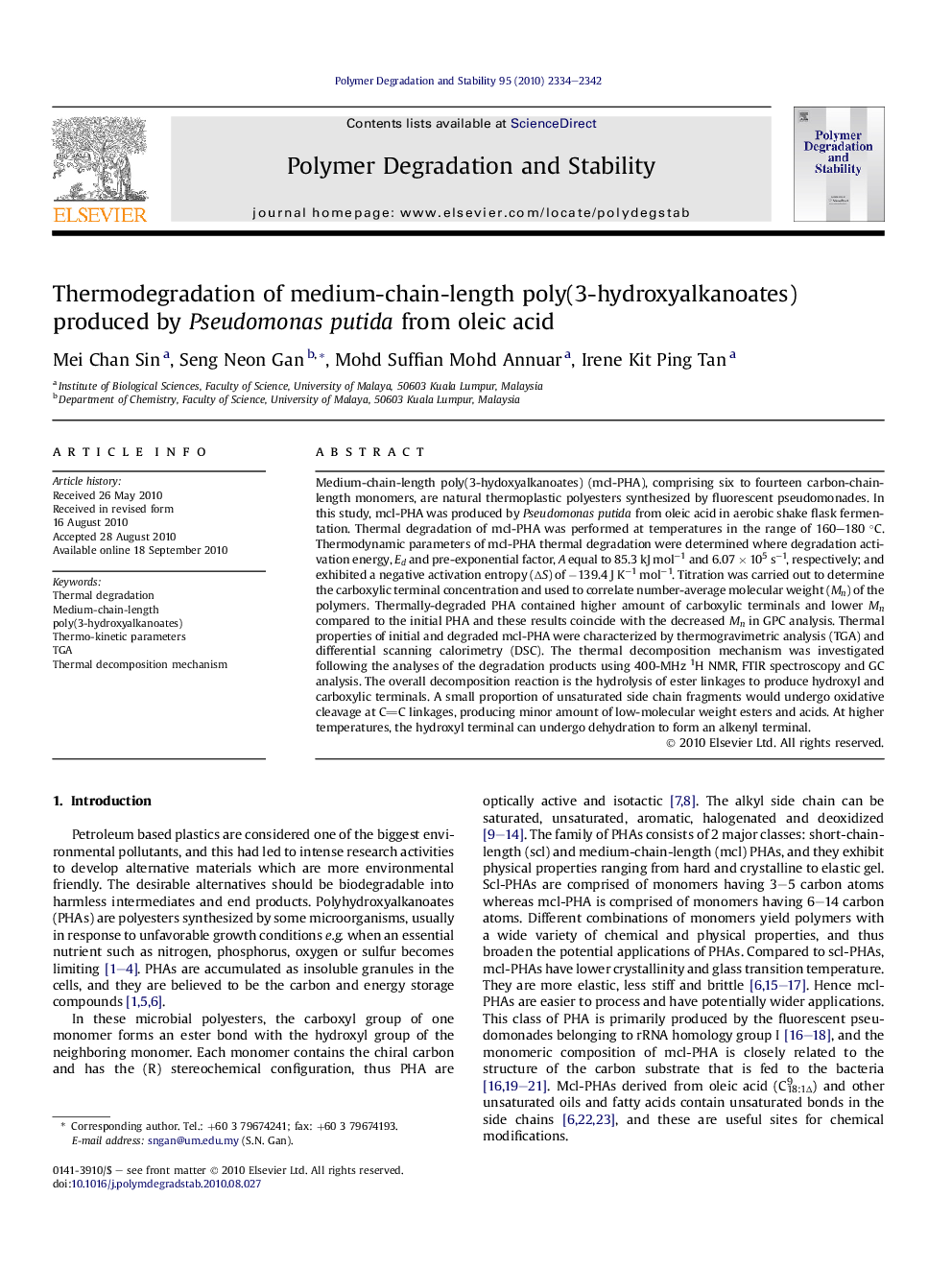| Article ID | Journal | Published Year | Pages | File Type |
|---|---|---|---|---|
| 5203177 | Polymer Degradation and Stability | 2010 | 9 Pages |
Abstract
Medium-chain-length poly(3-hydoxyalkanoates) (mcl-PHA), comprising six to fourteen carbon-chain-length monomers, are natural thermoplastic polyesters synthesized by fluorescent pseudomonades. In this study, mcl-PHA was produced by Pseudomonas putida from oleic acid in aerobic shake flask fermentation. Thermal degradation of mcl-PHA was performed at temperatures in the range of 160-180 °C. Thermodynamic parameters of mcl-PHA thermal degradation were determined where degradation activation energy, Ed and pre-exponential factor, A equal to 85.3 kJ molâ1 and 6.07 Ã 105 sâ1, respectively; and exhibited a negative activation entropy (âS) of â139.4 J Kâ1 molâ1. Titration was carried out to determine the carboxylic terminal concentration and used to correlate number-average molecular weight (Mn) of the polymers. Thermally-degraded PHA contained higher amount of carboxylic terminals and lower Mn compared to the initial PHA and these results coincide with the decreased Mn in GPC analysis. Thermal properties of initial and degraded mcl-PHA were characterized by thermogravimetric analysis (TGA) and differential scanning calorimetry (DSC). The thermal decomposition mechanism was investigated following the analyses of the degradation products using 400-MHz 1H NMR, FTIR spectroscopy and GC analysis. The overall decomposition reaction is the hydrolysis of ester linkages to produce hydroxyl and carboxylic terminals. A small proportion of unsaturated side chain fragments would undergo oxidative cleavage at CC linkages, producing minor amount of low-molecular weight esters and acids. At higher temperatures, the hydroxyl terminal can undergo dehydration to form an alkenyl terminal.
Related Topics
Physical Sciences and Engineering
Chemistry
Organic Chemistry
Authors
Mei Chan Sin, Seng Neon Gan, Mohd Suffian Mohd Annuar, Irene Kit Ping Tan,
